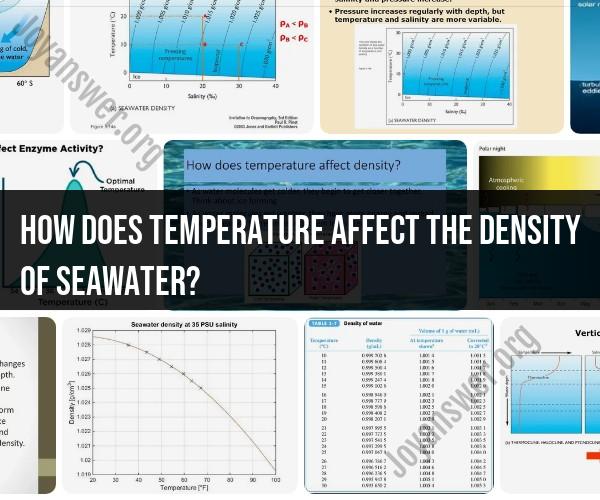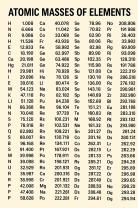How does temperature affect the density of seawater?
The density of seawater is influenced by temperature, salinity, and pressure. Temperature plays a significant role in determining the density of seawater, and the relationship between temperature and density follows a particular pattern. Here's an overview of how temperature impacts seawater density:
1. Warm Water and Density:As seawater temperature increases, its density decreases. This relationship is due to the behavior of water molecules. When water is heated, the molecules gain energy and move farther apart. This expansion causes warm water to be less dense than cooler water.
2. Cold Water and Density:Conversely, as seawater temperature decreases, its density increases. Cold water has more closely packed molecules, making it denser than warmer water.
3. Thermocline:In oceans and large bodies of water, there is often a layer known as the thermocline. The thermocline is a transition zone between warmer surface waters and colder deep waters. In the thermocline, there is a rapid change in temperature, leading to changes in density. This layer can influence ocean circulation and vertical mixing.
4. Density Stratification:The relationship between temperature and density contributes to density stratification in oceans and seas. This stratification can affect ocean currents, nutrient distribution, and marine ecosystems. Cold, dense water tends to sink, while warmer, less dense water rises.
5. Ocean Circulation:Temperature-driven density differences play a crucial role in driving ocean currents. Warm water at the equator is less dense and tends to move towards the poles, while colder, denser water at higher latitudes moves towards the equator. This movement helps to regulate Earth's climate by redistributing heat.
6. Saltwater's Impact:It's important to note that the relationship between temperature and density can be influenced by salinity. Salty water is denser than freshwater, so the impact of temperature on density is modulated by the salt content of seawater. In general, cold, salty water is denser than warm, less salty water.
In summary, the relationship between temperature and seawater density follows a consistent pattern: as temperature increases, density decreases, and as temperature decreases, density increases. Understanding these relationships is crucial for understanding ocean circulation, climate patterns, and marine ecosystems.













